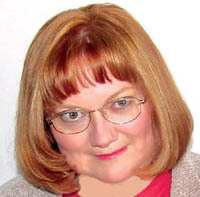The Best Retirement Plan Ever
By Mary Pride
Printed in Practical Homeschooling #87, 2009.
 You may think monetarily when looking towards your retirement plan, but there's an asset much more priceless you can invest in
You may think monetarily when looking towards your retirement plan, but there's an asset much more priceless you can invest in

| 
|
 Part of my job here at Practical Homeschooling is to stay on top of
trends. By this I mean not only educational trends, but also cultural
and even financial trends.
Part of my job here at Practical Homeschooling is to stay on top of
trends. By this I mean not only educational trends, but also cultural
and even financial trends.
Basically, I try to figure out what’s coming down the pike. Then I
consider how it affects homeschoolers, and what, if anything, would be
the best way for us to cope.
This issue’s weighty article on Mandatory Voluntary Service is a result
of this research. (It starts on page 12, and I highly suggest you read
it.)
It’s not always gloom and doom, of course. Even when the trend loudly
yells, “Gloom! Doom!” often there’s a way to avoid the negative fallout.
Such is the case with what’s coming in the wonderful worlds of health
care and retirement policy.
Hillsdale College publishes a wonderful little newsletter called
Imprimis. The latest issue has excerpts from a speech by John C. Goodman
of the National Center for Policy Analysis. In it, he leads off with bad
news: “When we get through the economic time that we’re in right now,
we’re going to be confronted with an even bigger problem.” The problem?
Baby Boomers are about to start signing up for Medicare. “All told, 78
million people are going to stop working, stop paying taxes, stop paying
into retirement programs, and start drawing benefits.” But the
government has frugally put aside money for decades to take care of
that, right? In your dreams!
In more not-so-good news, it turns out that “many employer-sponsored
pension plans are not fully funded,” nor is the “federal government
insurance scheme” that supposedly is backing them. And your employer’s
post-retirement health plan? Good luck there. Most such plans aren’t
fully funded . . . not even if you work for state or local government.
According to the Congressional Budget Office, “Medicare and Medicaid
alone are going to crowd out everything else the federal government is
doing by mid-century.”
Dr. Goodman goes on to offer up some sensible suggestions for allowing
doctors and patients more control over procedures and medical pricing.
But in today’s political world, it’s doubtful his suggestions will be
applied.
So where’s the good news?
It’s simply this.
Our homeschooled children.
Take a look at history, way back before Medicare (which started in
1965), Medicaid (also 1965), and Social Security (1935).
Yes, even in the USA, forty-four years ago there was no
government-funded medical care for anyone except military veterans.
Seventy-four years ago there was no government retirement plan.
So, what happened to all those old folks then?
A 1920 black-and-white silent movie, Over the Hill to the Poor House,
depicted in “sob story” fashion the fate of an old woman whose family
abandoned her. In spite of working her fingers to the bone to take care
of them, scrubbing the floors in a train station, they tossed her out
when she got too old to work.
The reason this was a Hollywood movie, and not a documentary, was that
it was actually extremely rare for anyone with children to have to worry
about their “retirement.” Audiences could weep over the trials of the
movie’s heroine precisely because they were not worried about it
actually happening to them.
We constantly hear about how Chinese families want their one child to be
a boy. Why? Because traditionally boys take care of their aged parents,
while girls become part of another family. Similarly, the reason Third
World families are larger than those in more developed nations is that
impoverished parents, in countries where government offers little or no
help, know their only hope of survival once they are unable to work is .
. . their children.
For millennia, the world has solved its “retirement” and “medicine for
old folks” problems by raising children who understood their
responsibilities to the old folks in their families. Mom and Dad passed
on their material possessions to their children while they were still
alive. They also helped as much as they could around the house, with the
grandchildren and great-grandchildren, and so forth. In exchange for
this, and for all the years the parents had sacrificed to raise their
children, they were entitled to house space, food, and whatever medical
care the family could afford.
Of course, people didn’t live as long back then, and medical procedures
weren’t as expensive. On the other hand, people can also work longer
now, so “retirement” doesn’t have to occur until the 70s, 80s, or even
90s, and the coming revolution in nurse-managed primary care should help
knock medical costs back.
Saving up lots of money for your retirement might sound smart, but who
says the government won’t have grabbed it by then? A large family of
devoted children and grandchildren is still the best retirement plan.
Mary Pride is the publisher of Practical Homeschooling.